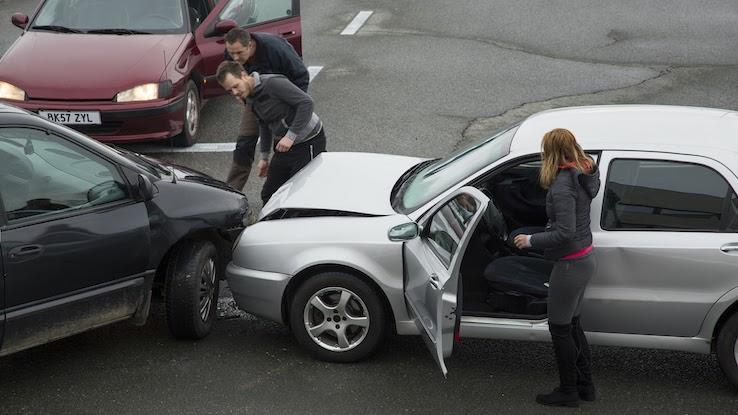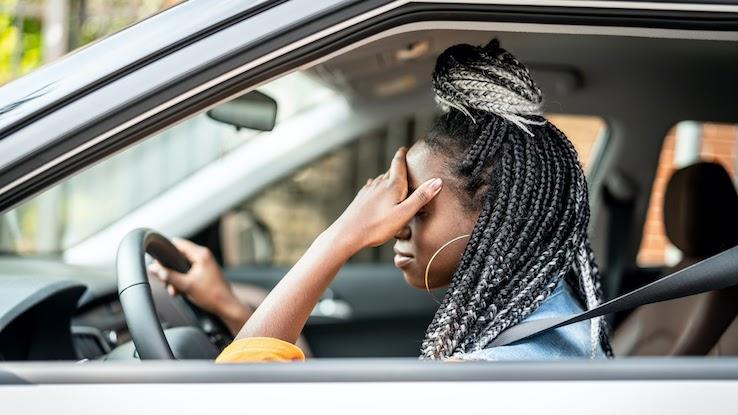Car Accident Other Person No Insurance at Fault California

When you purchase a car, the law requires you to also purchase some form of car insurance, and the auto insurance rates you pay for your policy depend on a variety of factors. One of the biggest things insurance companies take into account when determining your car insurance rate is your driving record.
If you've demonstrated that you're a risky driver, your auto insurance premiums will likely be higher than they'd be if the insurance company deemed you less of a risk. That's why every time you file a claim, your insurance provider re-evaluates the amount you pay. The purpose isn't to punish you, but to reflect that you're a driver who may be more likely to get involved in accidents and is thus more expensive to insure. Your insurer takes into account all driving incidents that happen in which you're at fault. As such, an at-fault claim will almost always cause your premium costs to increase. Additionally, your car insurance may increase even if an incident you're involved in wasn't your fault.
Learn more about several factors that influence car insurance rates after a claim — as well as some advice for how to potentially get claims back down to more affordable levels — if you're looking to lower your rates or better understand how an accident can impact your vehicle insurance.

If you're at fault in a car accident, your insurance rates will almost certainly increase. But just how much your rates could increase depends on several factors of the accident, including whether someone was injured, how much those medical bills cost and how much any property damage that occurred ended up costing.
Some auto insurance companies offer what's called "accident forgiveness." This is when the company disregards your first at-fault accident and doesn't raise your rates. To gain access to this benefit and include it in your car insurance policy, you usually have to pay more for your premiums. Also, if it's available, insurers may only offer it to drivers who have clean driving histories.
Often, if an accident isn't your fault, your car insurance rates won't go up. However, sometimes they might, depending on the state you live in, the insurance provider you have and the total cost of the accident. If you live in a state where each person makes their own claims for injuries from an accident and you make a claim because you or someone in your car was injured, your car insurance premium could increase in an accident that wasn't your fault.
Additionally, insurers sometimes consider fault in an accident on a scale rather than on an all-or-nothing basis. After all, it's not always easy to prove fault in an accident. This means you could be deemed 30%, 50% or 70% percent at fault. Some insurance companies won't raise your insurance premiums so long as you are less than 50% at fault.
What Does Your Driving Record Look Like Overall?

A driver with a clean record, meaning no vehicle-related incidents on their record at all, is generally going to have lower car insurance rates than people whose driving records reflect refractions or even other incidents. Drivers with a history of accidents and citations will be facing much higher rates. In other words, your driving record has a major impact on your car insurance premium.
The more auto accident claims you file, especially those in which you're at fault, the more your car insurance premium rates will go up. This is simply because every accident you get into causes the insurer to consider you an even riskier driver than before, and it's anticipating that it'll need to eventually pay out some sort of claim for damage based on your higher likelihood of causing that damage. Some of those costs are passed onto you.
Typically, an accident stays on your record for three to five years, which means your insurance rates will usually remain at least somewhat inflated for that period until your record has cleared. As time passes without an accident, your rates will gradually reduce. Exactly how long an incident stays on your record depends on the state where you live and the unique details of the accident situation, though.
Even in accidents in which you're not at fault, if the property damage was high or someone was injured or died, this can continue appearing on your record. Any accident that involves a DUI or reckless driving on your part could stay on your record for as long as 10 years.
How Much Did the Accident Cost?

If someone was injured in an accident that was your fault, your car insurance rates will go up by a significant amount. Often, the more their medical bills cost, the more your insurance will go up. The amount of the increase varies by insurance company and state.
The same is true for property damage in an accident in which you're at fault, though the process is slightly less cut and dry than it is for injuries. For example, some insurers don't raise rates for property damage that costs less than a certain amount, such as if it's under a $500 or $750 threshold. This varies by company and state as well. Furthermore, the higher the cost of the property damage, the more your rates will likely increase.
The percentage of the rate increase is usually calculated according to thresholds. For instance, if the property damage is less than $2,000, the percentage of the rate increase could be a fixed amount. If the property damage costs more than $2,000, however, the percentage of the rate increase could be a higher fixed amount.
How Can You Lower Your Car Insurance Rates After an Accident?

Unless you have an accident forgiveness clause in your policy, your car insurance rates will go up after an accident that's your fault takes place and you make a claim. That being said, there are ways to lower your car insurance despite this.
One way is to shop around for a new policy. Another insurance company might quote you a lower rate, even with the accident on your record. Another way is to increase your deductible. In this case, if you get in another accident, the amount you pay before the insurance begins covering the costs of damage is higher. But, the premiums you pay for insurance will potentially decrease from their original elevated amount.
Improving your credit score is another, lesser-known way of potentially lowering your car insurance premium. This is because many insurance companies consider people with higher credit scores to be less likely to file claims. Some states prevent insurance companies from considering your credit score when evaluating your potential risk, however, so this may not be an option where you live.
Lastly, it might help to take a driving class. If the accident wasn't the result of driving under the influence or reckless driving, a refresher driver's education course could show your insurer that you're actively trying to improve your skills. In that case, the company might consider you less of a risk and lower your rates, at least a little bit. Inform your insurance company that you're doing this and find out if it's possible to lower your rates this way.
MORE FROM ASKMONEY.COM


Car Accident Other Person No Insurance at Fault California
Source: https://www.askmoney.com/insurance/auto-accident-claims-car-insurance-rates?utm_content=params%3Ao%3D1465803%26ad%3DdirN%26qo%3DserpIndex